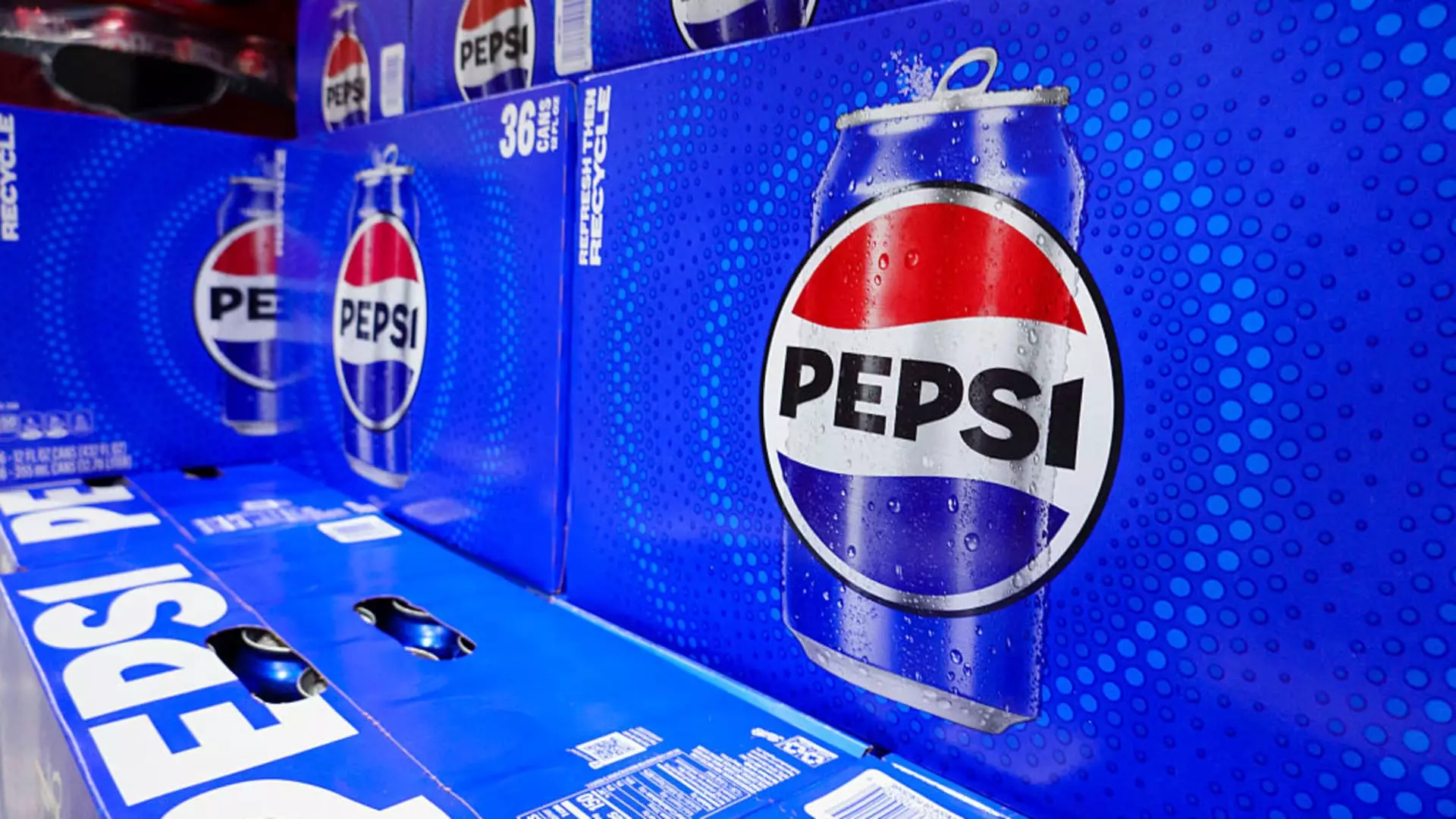PepsiCo’s recent earnings release should not mask the underlying fragility of its current business model. Despite surpassing Wall Street’s expectations with a modest 2% rise in revenue and a slightly higher-than-anticipated earnings per share, the core realities paint a more concerning picture. The company’s net income plummeted from $3.08 billion to $1.26 billion—an alarming decline that reveals how difficult it has become for a multinational giant to sustain growth amid shifting consumer behaviors and economic instability. The superficial optimism in the quarterly results distracts from the fact that, behind the scenes, demand is weakening—demand that once fueled PepsiCo’s meteoric rise.
In an era where consumer preferences are dictating the future of the food and beverage industry, PepsiCo’s persistence with traditional portfolio strategies seems increasingly out of touch. The flat volume for drinks and a 1.5% decline in food volume in the U.S. showcase that American consumers are becoming more discerning, more health-conscious, and more willing to explore alternatives. This isn’t just a matter of temporary fluctuations; it signals a fundamental market shift that PepsiCo’s management appears slow to fully grasp.
The Illusion of Growth in a Complex Reality
While the topline figures—particularly the organic revenue increase—might appear to indicate resilience, they are not enough to hide the underlying decline in consumer engagement. The strategic focus on “growth” through product diversification into healthier, multicultural options, and the push into high-protein niches, are necessary adaptations. Yet, these efforts are mere band-aids on a gaping wound of decreasing consumer loyalty and market share erosion.
Pepsi’s attempt to slim down costs by closing plants and streamlining logistics might boost short-term margins, but it raises questions about long-term sustainability. Are these measures enough to counteract the broader issues of consumer fatigue, changing habits, and economic headwinds? The results suggest that rather than being a sign of resilience, they are a desperate clutch at efficiency in the face of declining demand.
Furthermore, the company’s emphasis on marketing optimization and product placement indicates how much it is reliant on tactical adjustments rather than fundamental shifts. Relying on strategic cost-cutting and marketing efficiency as primary levers signals that PepsiCo might be approaching a plateau—where growth must be achieved through innovation and consumer connection, not just operational efficiencies.
Market Realities and the Illusive Promise of Optimism
PepsiCo’s reaffirmation of its full-year outlook appears increasingly disconnected from the economic realities faced by millions of consumers. The ongoing global volatility—taxes, tariffs, inflation—compound this disconnect, making the company’s optimistic projections somewhat naive in the eyes of critical observers. The cautious stance expressed earlier by management last quarter, when they cut earnings forecasts citing economic and tariff concerns, now clashes with the more upbeat tone of their latest report.
This disparity highlights a troubling tendency among large corporations to prioritize short-term investor confidence over genuine adaptation. The superficial celebration of modest growth with impressive-sounding figures masks a deeper uncertainty about whether PepsiCo can genuinely thrive in a landscape dominated by health-conscious millennials, environmental concerns, and economic turmoil.
Rather than acknowledging its vulnerabilities, PepsiCo’s leadership seems eager to paint a picture of robustness, possibly to appease shareholders’ fears. But such optimism borders on denial. The real story is that the company is wrestling with a fundamental paradigm shift—a challenge that simple cost reductions and product diversification cannot solve alone.
In essence, PepsiCo’s recent performance is a microcosm of an industry at crossroads. It is a wake-up call that traditional business models are increasingly obsolete when faced with changing consumer values and a volatile global economy. While the company’s recent earnings report may suggest resilience, it is increasingly clear that it is a fragile veneer masking deeper structural issues.
As a center-leaning observer, I see this as a pivotal moment—one where genuine innovation, authentic consumer engagement, and responsible practices must take precedence over superficial metrics and short-term cost-cutting. If PepsiCo continues down this path of evasive optimism, it risks not only stagnation but also irrelevance in a rapidly evolving market landscape. The challenge now is for the company to embrace these shifts rather than cling to the illusion that it can simply “stay the course” with minor adjustments. The future belongs to those willing to confront their vulnerabilities and reinvent themselves accordingly.

